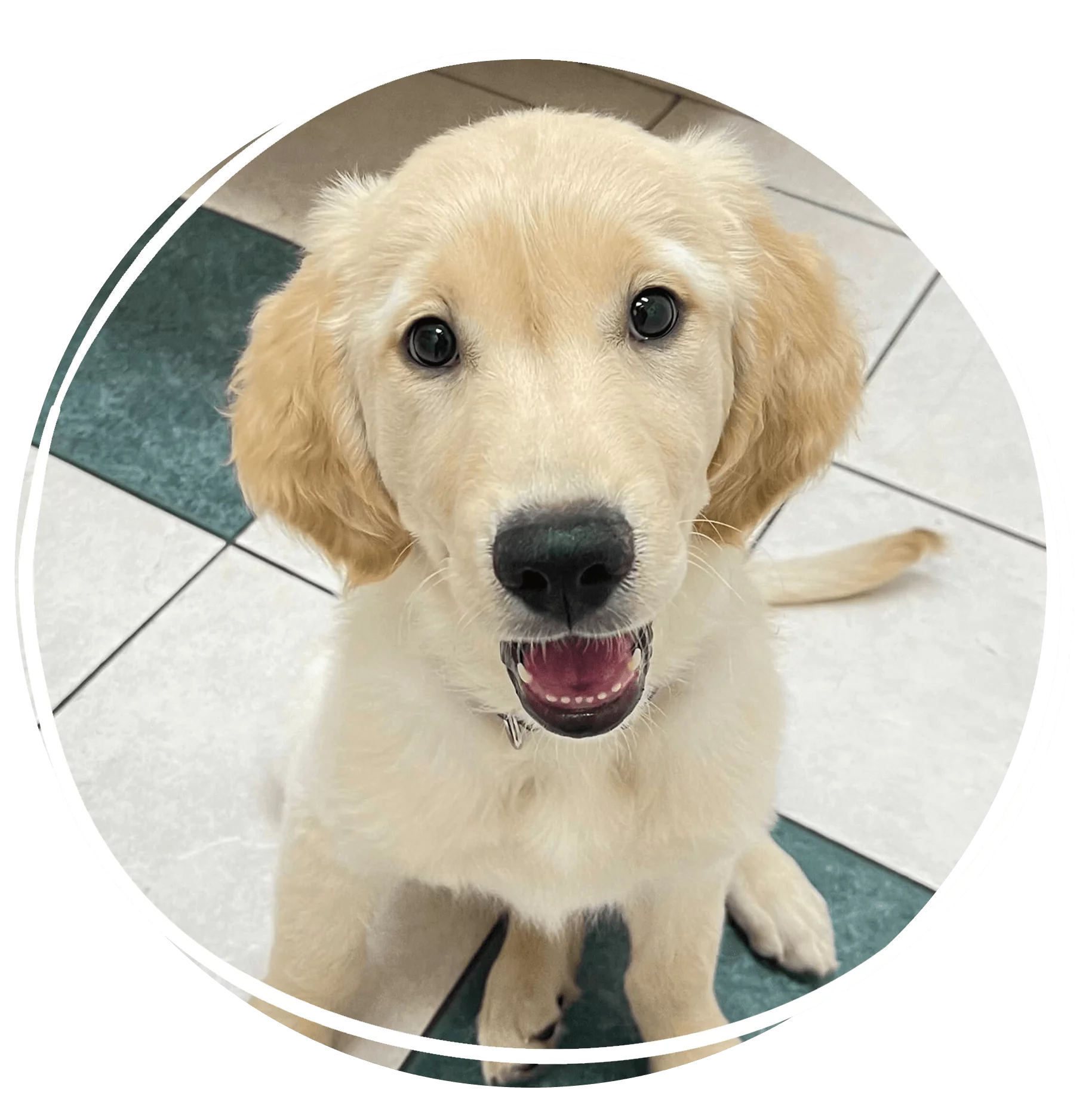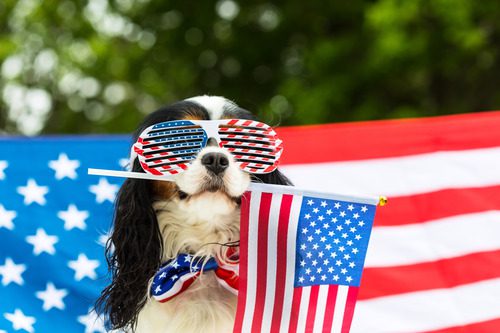
Our Veterinary Blog
Pet Firework Safety
The 4th of July is a time of celebration, but for many pets, it can be a stressful and frightening experience. Fireworks, loud noises, and unfamiliar activities can create anxiety and pose risks to your pet’s safety. In this blog, we’ll provide comprehensive guidance on pet firework safety to help you prepare and protect your furry friends during the festivities. If you have any concerns or need assistance, call Lakeland Animal Clinic at (863) 688-3338.

Understanding Pet Anxiety During Fireworks
Pets, especially dogs and cats, have sensitive hearing and can be easily startled by loud noises. Fireworks can cause significant anxiety, leading to behaviors such as trembling, panting, hiding, or even attempting to escape. Understanding the sources of your pet’s anxiety can help you manage and mitigate their stress.
Common Signs of Firework Anxiety in Pets:
- Trembling or shaking
- Excessive drooling or panting
- Hiding or trying to escape
- Destructive behavior
- Excessive barking or meowing
- Loss of appetite
Recognizing these signs early allows you to take proactive steps to calm your pet and ensure their safety.
Preparing Your Home for Pet Firework Safety
Creating a safe and comforting environment at home is crucial for pet firework safety. Taking simple measures can significantly reduce your pet’s anxiety and help them feel secure.
Creating a Safe Space
Designate a quiet, comfortable area in your home where your pet can retreat during the fireworks. This space should be away from windows and doors to minimize the noise and visual impact of fireworks. Add familiar items like your pet’s bed, toys, and blankets to make the space more comforting.
Reducing Noise
Close windows, doors, and curtains to reduce the noise and bright flashes of fireworks. Playing calming music or using a white noise machine can also help drown out the sounds of fireworks. These steps can create a more serene environment for your pet.
Secure Your Home
Ensure all doors, windows, and gates are securely closed to prevent your pet from escaping if they become frightened. Update your pet’s identification tags and microchip information in case they manage to get out.
Managing Your Pet’s Anxiety
There are several strategies you can use to manage your pet’s anxiety during fireworks. Understanding these techniques can help you choose the best approach for your pet.
- Natural Calming Aids: Consider using natural calming aids such as pheromone diffusers, anxiety wraps, or herbal supplements. These products can help reduce your pet’s stress levels without the need for medication. Always consult with your veterinarian before trying new products to ensure they are safe for your pet.
- Distraction Techniques: Engage your pet with their favorite activities to distract them from the fireworks. Playing games, offering special treats, or providing puzzle toys can keep their mind occupied and reduce anxiety. This method not only helps distract your pet but also reinforces positive behavior.
- Professional Help: If your pet’s anxiety is severe, consult with your veterinarian about possible treatments. They may recommend behavioral therapy or prescribe anti-anxiety medication to help manage your pet’s stress during fireworks. Always follow your veterinarian’s advice and never administer medication without their guidance.
Outdoor Safety Measures
If you plan to be outside with your pet during fireworks, taking precautions is essential to ensure their safety. Outdoor environments can pose additional risks, so being prepared is key.
Leash and Harness
Always keep your pet on a leash and use a secure harness to prevent them from running away if they become frightened. A well-fitting harness is less likely to slip off compared to a collar.
Avoid Fireworks Displays
It’s best to keep your pet away from fireworks displays altogether. The loud noises and bright lights can be overwhelming and dangerous for pets. Instead, find a quiet spot where your pet can stay calm and safe.
Hydration and Comfort
Make sure your pet has access to fresh water and a comfortable place to rest. The excitement of the holiday can sometimes cause pets to forget to drink water, leading to dehydration. Keeping them hydrated is crucial for their well-being.
Post-Firework Care
After the fireworks have ended, your pet may still feel anxious or stressed. Providing care and reassurance can help them recover more quickly.
- Check for Injuries: Inspect your pet for any signs of injury or distress. Fireworks debris or escaping attempts can sometimes result in cuts, scrapes, or other injuries. If you notice anything concerning, contact your veterinarian immediately.
- Maintain Routine: Returning to your pet’s normal routine can help them feel more secure. Stick to regular feeding, exercise, and playtime schedules to provide a sense of normalcy and comfort.
- Extra Attention: Give your pet extra attention and reassurance after the fireworks. Spending quality time with them can help reduce lingering anxiety and reinforce their sense of safety.
Promoting a Safe and Happy 4th of July for Your Pet
Fireworks can be a source of stress for many pets, but with the right preparation and care, you can protect your pet and help them feel more at ease. By understanding their anxiety, creating a safe environment, managing their stress, and taking precautions outdoors, you can ensure a safer and more enjoyable 4th of July for both you and your pet. If you have any questions or need further assistance, call Lakeland Animal Clinic at (863) 688-3338. Your pet’s well-being is our priority, and we’re here to support you every step of the way.
Recent Posts
About Us
Family is family, whether it has two legs or four. At Lakeland Animal Clinic, we've spent the last 40 years healing and caring for your pets. As a family-operated practice, we know that family is about more than simply being related. Animals give us the ability to develop strong bonds and feel great compassion for a fellow living creature.
